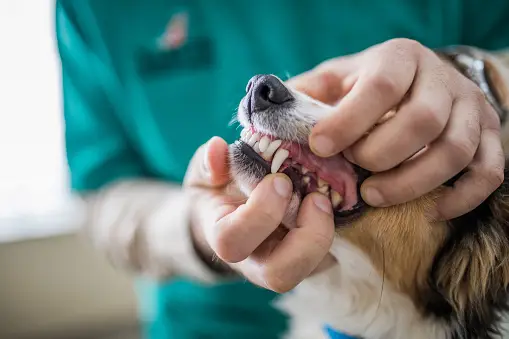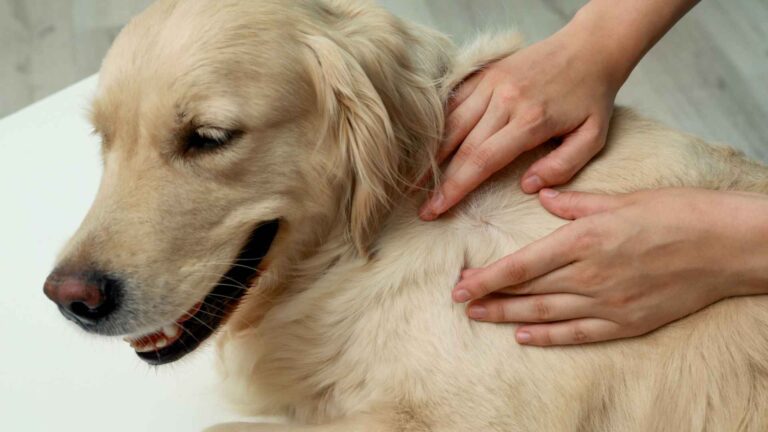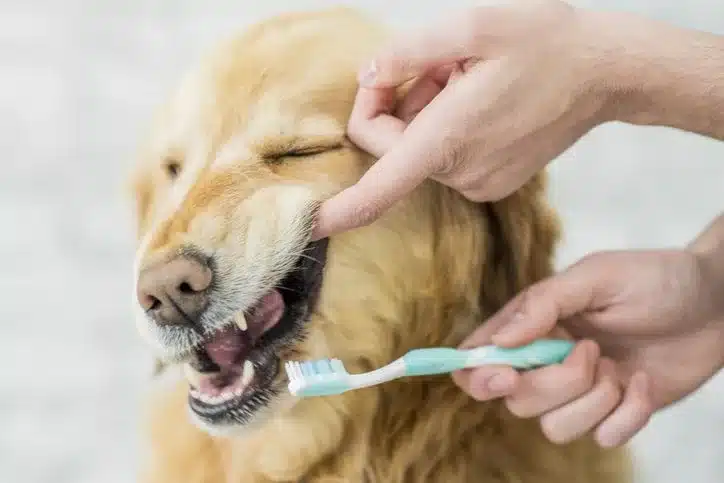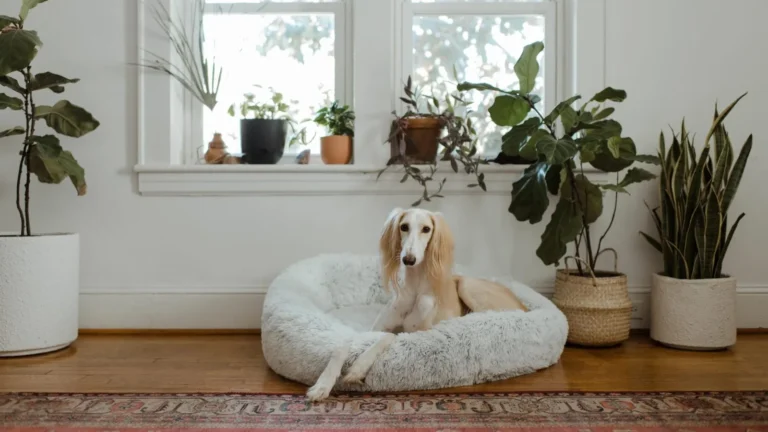Dog dental health is an essential aspect of overall Dog Health. Just like humans, dogs also require regular dental care to maintain a healthy smile. Regular dental check-ups, proper oral hygiene, and a balanced diet are vital for preventing dental diseases and maintaining fresh breath. In this article, we will discuss some valuable tips and techniques to ensure your canine companion’s dental health is in top shape. From brushing techniques to dental treats, we will cover everything you need to know to keep your furry friend’s teeth and gums healthy.
Why is canine dental health important?
Maintaining proper dental health is crucial for dogs for several reasons. A healthy smile not only keeps their teeth and gums in good condition but also contributes to their overall well-being.
The impact of poor dental health on overall health
Poor dental health in dogs can have a significant impact on their overall health. When dental issues such as gum disease, tooth decay, or infections go untreated, harmful bacteria can enter the bloodstream and spread throughout the body. This can potentially lead to more serious health problems, including:
- Heart disease: The bacteria from dental infections can travel to the heart and cause inflammation, increasing the risk of heart disease.
- Kidney disease: Infections in the mouth can affect the kidneys, leading to kidney disease or exacerbating existing conditions.
- Respiratory issues: If bacteria from the mouth reach the respiratory system, it can result in infections, pneumonia, or other respiratory problems.
- Digestive disorders: Poor dental health can lead to difficulty chewing and swallowing, causing digestive issues such as constipation or malnutrition.
Common dental problems in dogs
Dogs are prone to several dental problems that can impact their oral health. These include:
- Gingivitis: This is the early stage of gum disease and is characterized by inflammation and redness of the gums. If left untreated, it can progress to periodontitis.
- Periodontitis: This is a more advanced stage of gum disease where the gums recede, exposing the tooth roots and leading to tooth loss.
- Plaque and tartar buildup: If not removed through regular dental care, plaque can harden into tartar, which can cause gum inflammation and lead to more severe dental issues.
- Tooth decay: Dogs can develop cavities, especially in their molars and premolars, leading to pain and potential tooth loss.
- Bad breath: Foul breath is often a sign of dental problems in dogs and should not be ignored.
Benefits of maintaining good dental health
Maintaining good dental health in dogs provides numerous benefits, including:
- Prevention of tooth loss: Regular dental care helps prevent gum disease and tooth decay, reducing the risk of tooth loss and the need for extractions.
- Pain prevention: Dental issues can cause significant pain and discomfort. By maintaining good dental health, dogs can avoid unnecessary pain.
- Improved overall health: By preventing the spread of harmful bacteria, dogs with good dental health are less likely to develop serious overall health issues.
- Fresh breath: Proper dental care helps combat bad breath, allowing dogs to have fresher breath and more pleasant interactions with their owners.
- Enhanced quality of life: Dogs with healthy teeth and gums can eat comfortably, play without pain, and enjoy a better quality of life overall.
In conclusion, canine dental health is crucial for the well-being of dogs. Poor dental health can have serious implications on their overall health, leading to various health issues. By understanding the impact of dental problems, common issues, and the benefits of maintaining good dental health, dog owners can prioritize their furry friend’s oral care to ensure a healthy and happy life.
Tips for maintaining your dog’s dental health
Regular brushing
Regular brushing is an essential part of maintaining your dog’s dental health. Just like humans, dogs can develop plaque and tartar buildup, which can lead to gum disease and other oral health issues. By brushing your dog’s teeth regularly, you can remove food particles and bacteria that can cause these problems. Here are some tips for brushing your dog’s teeth:
- Start slowly: Introduce toothbrushing gradually to your dog to avoid any discomfort or resistance. Begin by gently touching their lips and gums with your finger, then gradually introduce a toothbrush or finger brush.
- Use dog-friendly toothpaste: Never use human toothpaste on your dog, as it contains ingredients that can be harmful to them. Instead, opt for toothpaste specifically formulated for dogs, which come in flavors they enjoy.
- Choose the right toothbrush: There are various options for dog toothbrushes, including traditional brushes and finger brushes. Choose the one that you find most comfortable to use and that suits your dog’s size and breed.
- Focus on the gum line: When brushing, pay extra attention to the gum line, as this is where plaque and tartar tend to accumulate. Brush in gentle circular motions to effectively clean this area.
- Be patient and consistent: Brushing your dog’s teeth may take time for them to get used to. Be patient and consistent with your efforts, gradually increasing the duration of each brushing session as your dog becomes more comfortable.
Providing dental-friendly toys and treats
In addition to regular brushing, providing dental-friendly toys and treats can help maintain your dog’s dental health. Chewing on appropriate items can help reduce plaque and tartar buildup while also keeping your dog entertained. Here’s what you need to know:
- Choose toys designed for dental health: Look for toys that are specifically designed to promote dental health. These toys are usually made of materials that help clean your dog’s teeth while they chew, such as rubber or nylon.
- Opt for dental treats: Dental treats are specially formulated to promote oral health in dogs. They often have a textured surface that helps remove plaque and freshen breath. Make sure to choose treats that are appropriate for your dog’s size and breed.
- Avoid hard objects that can damage teeth: While it’s important to provide items for your dog to chew on, avoid giving them objects that are too hard, as they can cause tooth fractures or other dental injuries. Always supervise your dog when they are chewing to prevent accidents.
Scheduling professional dental cleanings
Regular professional dental cleanings are an essential part of your dog’s dental care routine. While brushing and chewing can help maintain oral health, a professional cleaning performed by a veterinarian is necessary to remove stubborn tartar and identify any underlying dental issues. Here’s what you need to know about scheduling professional dental cleanings for your dog:
- Consult with your veterinarian: Your veterinarian is the best person to assess your dog’s dental health and recommend when professional cleanings are necessary. They will evaluate your dog’s teeth and gums, looking for signs of periodontal disease or other dental problems.
- Follow the recommended schedule: Depending on your dog’s individual needs, your veterinarian will advise you on how often professional cleanings should be scheduled. Some dogs may require cleanings annually, while others may need them more frequently.
- Anesthesia may be required: In most cases, professional dental cleanings for dogs require anesthesia to ensure their safety and comfort during the procedure. Your veterinarian will discuss the anesthesia process and any associated risks with you.
- Follow post-cleaning care instructions: After your dog’s dental cleaning, your veterinarian will provide you with instructions on how to care for your dog’s teeth at home and maintain their dental health. Follow these instructions to ensure the best long-term results.
Remember, taking care of your dog’s dental health is essential for their overall well-being. By following these tips for regular brushing, providing dental-friendly toys and treats, and scheduling professional cleanings, you can help your dog maintain a healthy smile.
Maintaining a healthy smile is crucial for the overall well-being of our canine companions. By following these simple dental health tips, such as regular brushing, providing dental treats, and scheduling professional cleanings, we can help prevent dental diseases and ensure our dogs have strong and healthy teeth. Remember, a healthy smile leads to a happy and active pup, so let’s prioritize their dental health and give them the care they deserve.







